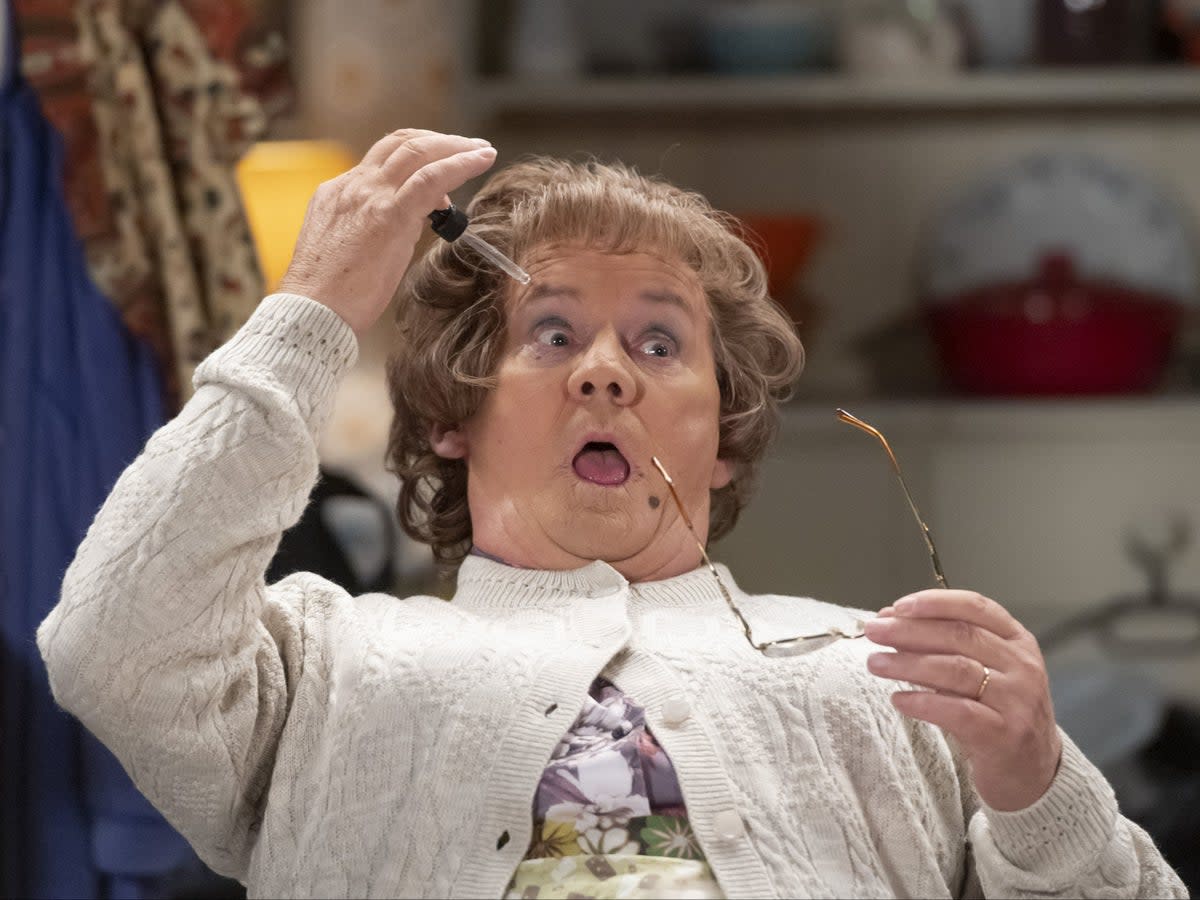Mrs Brown’s Boys review: Dismal material that does not elicit a single laugh

Early in the first episode of this new series of BBC One’s Mrs Brown’s Boys, Mammy (Brendan O’Carroll, of course) vouchsafes that she’s feeling very tired and unwell and, naturally, I hoped for the worst. Alas, the moribund but seemingly indestructible character of Agnes Brown will be around for a while longer, and, by the looks of it, may end up being the last programme that BBC television in its present linear form ever broadcasts. Whenever anyone asks me what the future of conventional television programming is, I point them to Mrs Brown’s Boys, as warning, cause and symbol of its eventual demise.
Please don’t think that I bear any personal malice towards any of those involved. I’ve nothing, apart from the obvious, against O’Carroll, his co-writer Paddy Houlihan, or anyone else involved in this televisual abomination, and I wish them long and prosperous lives (tempered by a degree of envy at how they, presumably, make such a comfortable living from the lowest of lowest common denominator comedy). Still, good luck to them, as Mammy might say.
As ever, there are no laughs – not a single titter – to be had from sitting through the half-hour, which wearily grinds its way through the usual uninspired, unoriginal, dismal material – the kind of stuff that would shame a best man’s speech delivered by, say, Sir Gavin Williamson. What passes for the dramatic action consists of a linear series of stilted, unconnected exchanges between Mrs Brown and her usual foils, ie the even more grotesquely anachronistic mate Winnie (Eilish O’Carroll), her insipid kids (portrayed with Cuprinol-grade woodenness by Jennifer Gibney, Rory Brown, Danny O’Carroll and Martin Delany), the priest (Conor Moloney, and may God forgive him, sure), Doctor Flynn (Derek Reddin), and of course Grandad (Dermot O’Neill, going through the motions in more ways than one).
Grandad, you see, is a bit bunged-up, bowel-wise, his moaning discomfort dismissed by Mammy with grim predictability as “you’re not constipated; you’re full of s***”. The line is so lame and amateurish – and I have to confess that I have myself deployed it in the past, thinking it modestly original, but with, I hope, a slight ironic sense of its own comedic inadequacy. O’Carroll, by contrast, delivers it with the full force of an overdose of Senokot.
The show climaxes, if you’ll forgive the expression, with Agnes blowing a suppository through a tube up Grandad’s arse, at which point the old man emits a modest fart, and his back door troubles are over.
In the right hands, so to speak, the sound of an elderly human male breaking wind after a week-long build-up of gas could be made hilariously funny as a wild and glorious caricature of the essential and essentially amusing bodily function, maybe garnished with a line about Grandad befouling some notional Dublin “low emission zone”. Frankly, I’d like to see such a sound effect (real or artificially acquired) win a Bafta and it would be worth the licence fee itself. But the noise that duly emanates from Grandad Brown’s congested bomb bay is a curiously short, muted, timid affair, especially given the length of its gestation, and anyway drowned out by the audience’s screams, as if they’d soiled themselves in sympathy with his predicament. The laziness with which the fart is rendered stands as a pungent indictment of the show’s producers.
As for Mammy, who has been milking her deeply concerning, unexplained fatigue for all its worth, to get her friends and family to do some household chores, all she needs in the end is some sleeping pills to restore her vigour. There’s a joke in very poor taste that could follow that line about sleeping pills, but, as it’s not funny, I won’t bother. Which, I suggest, is a maxim that O’Carroll himself ought to follow once in a while.

 Yahoo Lifestyle
Yahoo Lifestyle 
